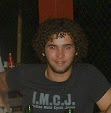The Darwin Debate is a ~50 min 1998 BBC show. It is not the typical documentary but a round table with four panelists and Melvyn Bragg acting as the host. Bragg is just moderating the debate of the panel composed of Steven Pinker, a renown cognitive scientist, psychologist, and linguist; Jonathan Miller, medical doctor, theater and opera director, actor, etc.; Steve Jones, geneticist specialized in evolution; and Meredith Small, a biological anthropologist. The panelists engage in very deep questions emerging from the analysis of Darwin's theory of natural selection in contemporary times. They often disagree (!), and there are several attempts of speculating about features of culture and society as if they were stemming from evolution. Indeed, The Darwin Debate is not only intended to be an accurate discussion on data and evidence, but it is aiming at performing an intellectual exercise to trigger some awareness on the limits and daily-life implications of Darwin theories. I strongly recommend you to watch it calmly, to pay attention to each standpoint. It is amazing to see how the profession and background shape (bias?) the speech of the panelists as well as their way of assuming the debate.
Enjoy!
Enjoy!

Do you know when was this recorded. I have the feeling that there are already answers for some of their speculations.
ReplyDeleteI checked... 1998.
Delete